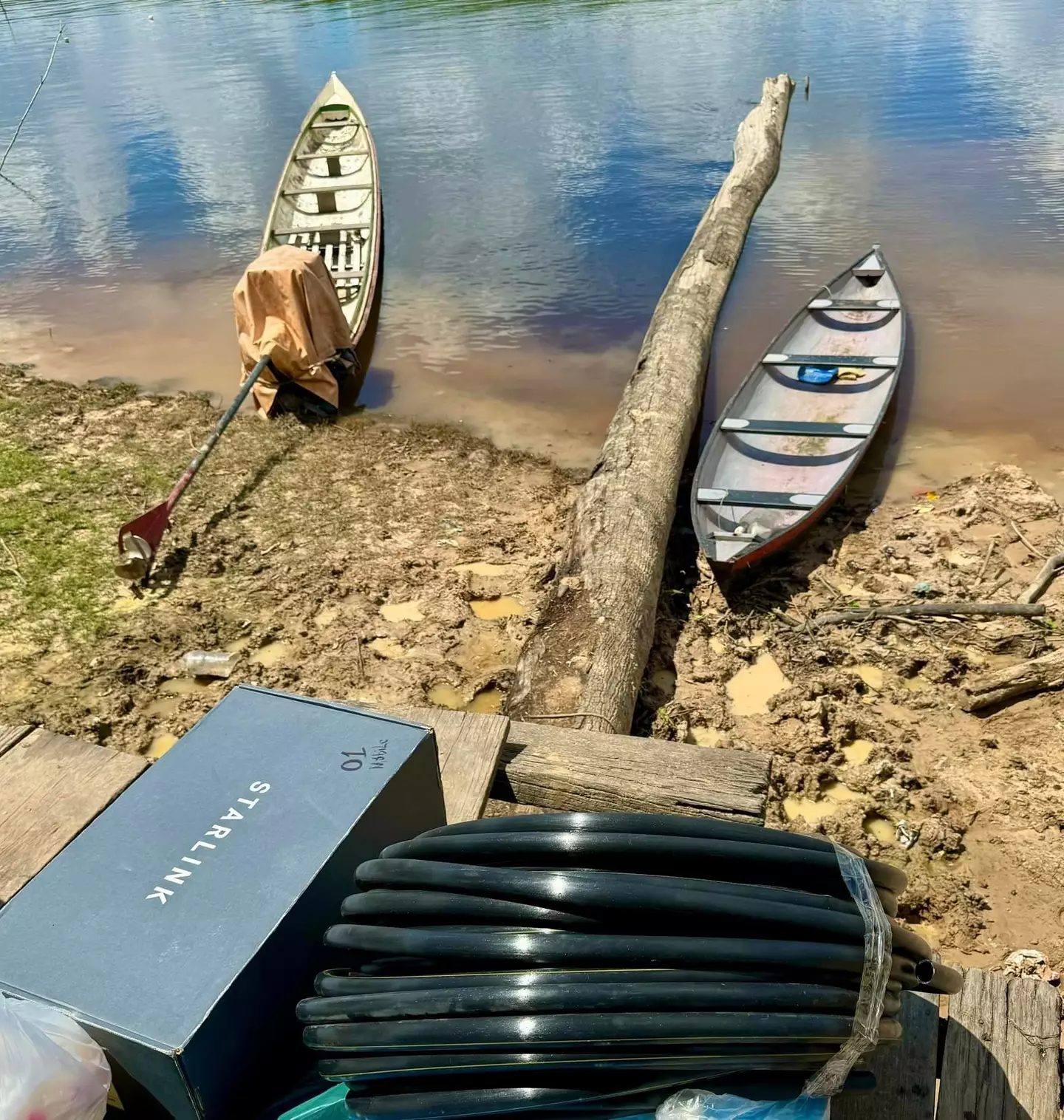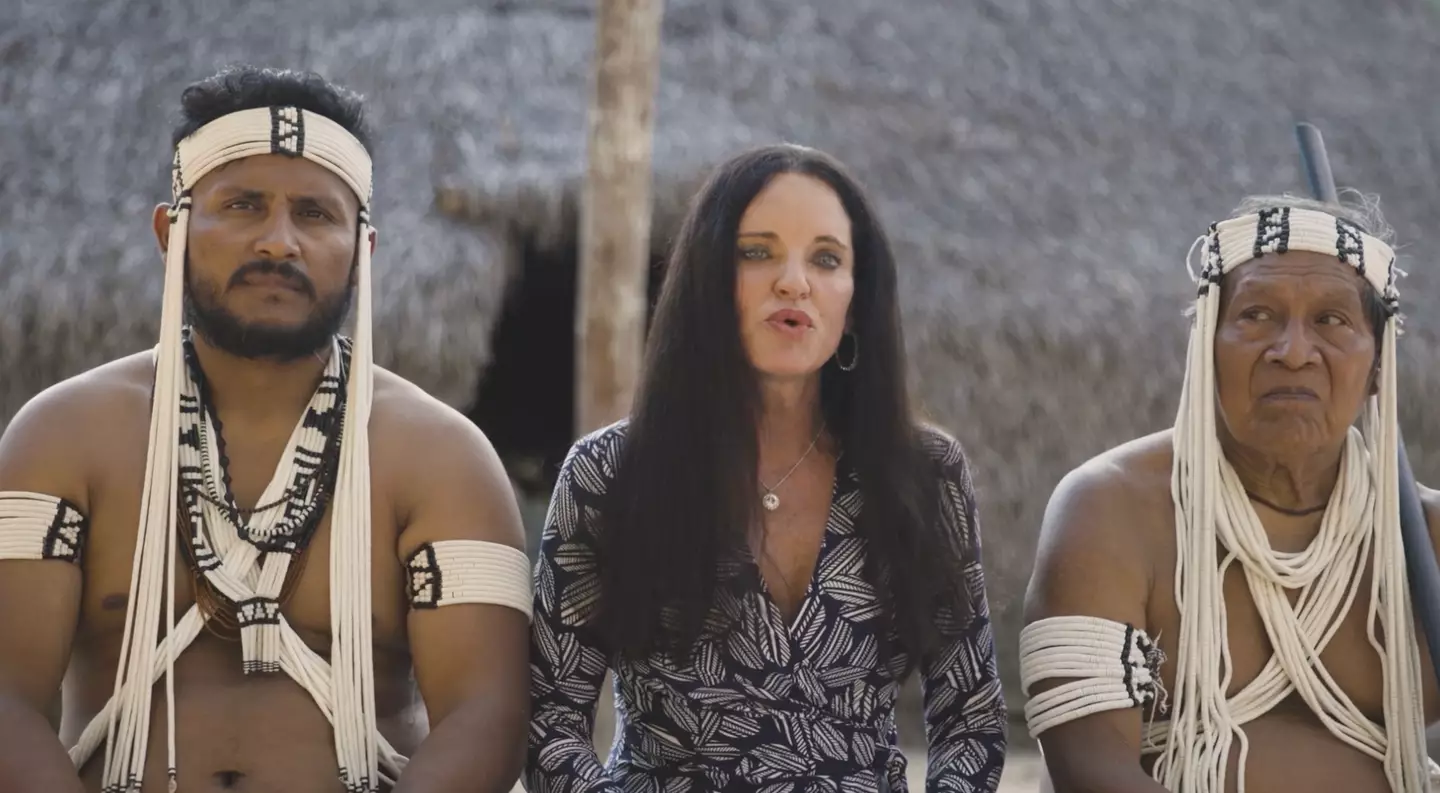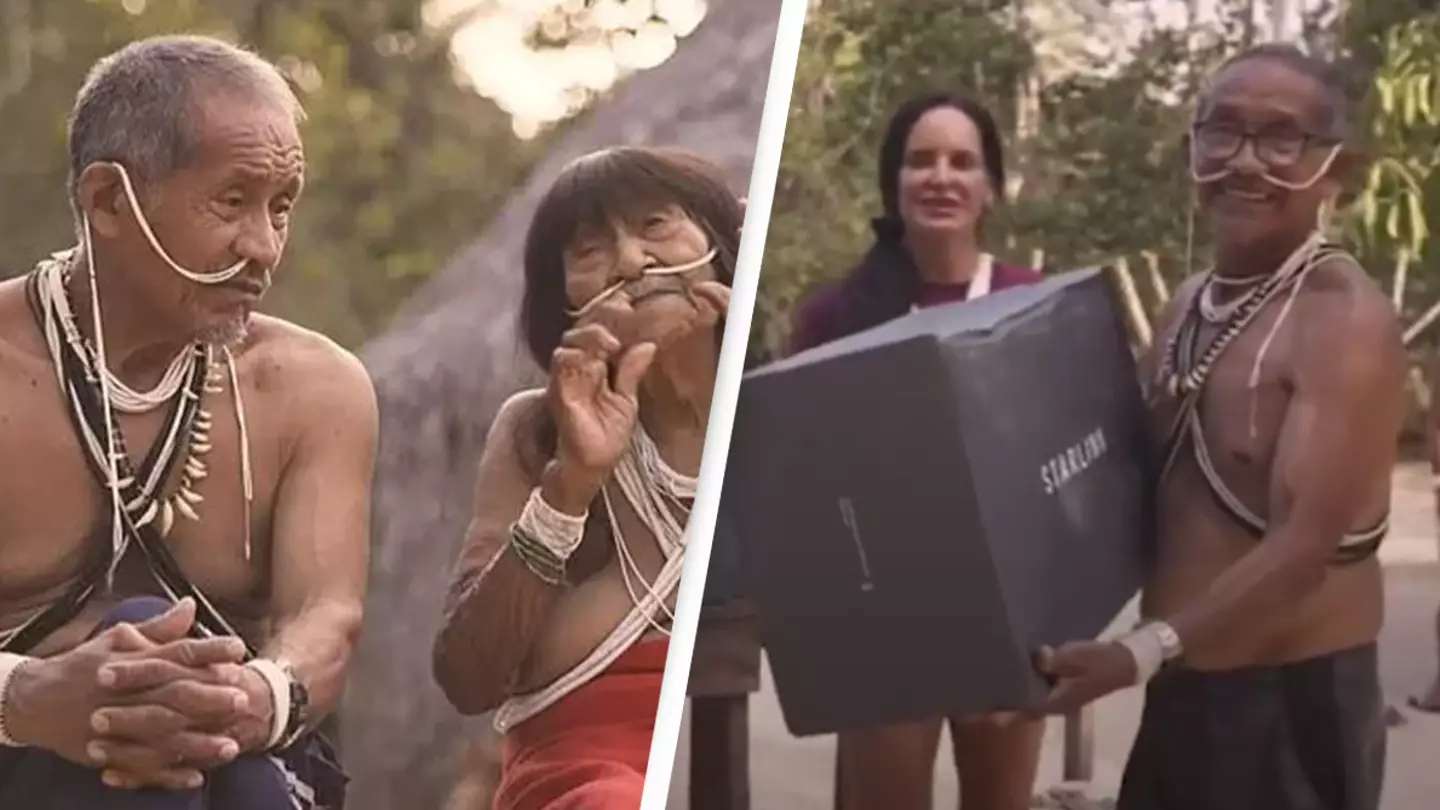Despite the undeniable benefits of internet connectivity, a remote tribe in the Amazon is encountering the mixed consequences of going online.
The United Nations reports that there are over 476 million indigenous individuals spread across 90 countries worldwide. These communities often lead secluded lives, disconnected from the global society. However, one tribe has become increasingly connected after being introduced to the internet.

The Marubo people, living along the Ituí River deep within the Amazon rainforest, received access to the internet in September of last year through Starlink, a service founded by Elon Musk. American entrepreneur Allyson Reneau facilitated this by donating the necessary antennas.
This new connectivity has proven to be a lifeline in emergencies, such as quickly seeking help during venomous snake bites, according to the tribe.

Marubo leader Enoque Marubo highlighted the vital role of Starlink in saving lives since its installation, as reported by The New York Times. Beyond emergency responses, the internet has facilitated communication between tribal leaders and allowed the Marubo people to stay connected with distant family members.
Despite these advantages, the introduction of the internet has also brought significant challenges. According to Alfredo Marubo, a leader from the Marubo village association, there has been an alarming increase in the circulation of pornography among the youth, which contradicts the tribe’s conservative values.
Alfredo expressed his concern to the media, stating, “We’re worried young people are going to want to try it.” He also noted a rise in aggressive sexual behavior among young men and observed that personal interactions within families have diminished as people spend more time on their devices.
Although the internet has clearly had a transformative impact on the tribe, it has also sparked division. Meanwhile, Brazilian activist Flora Dutra is optimistic about the prospects of expanding internet access to other isolated indigenous groups, including the Yanomami, Brazil’s largest remote tribe.

